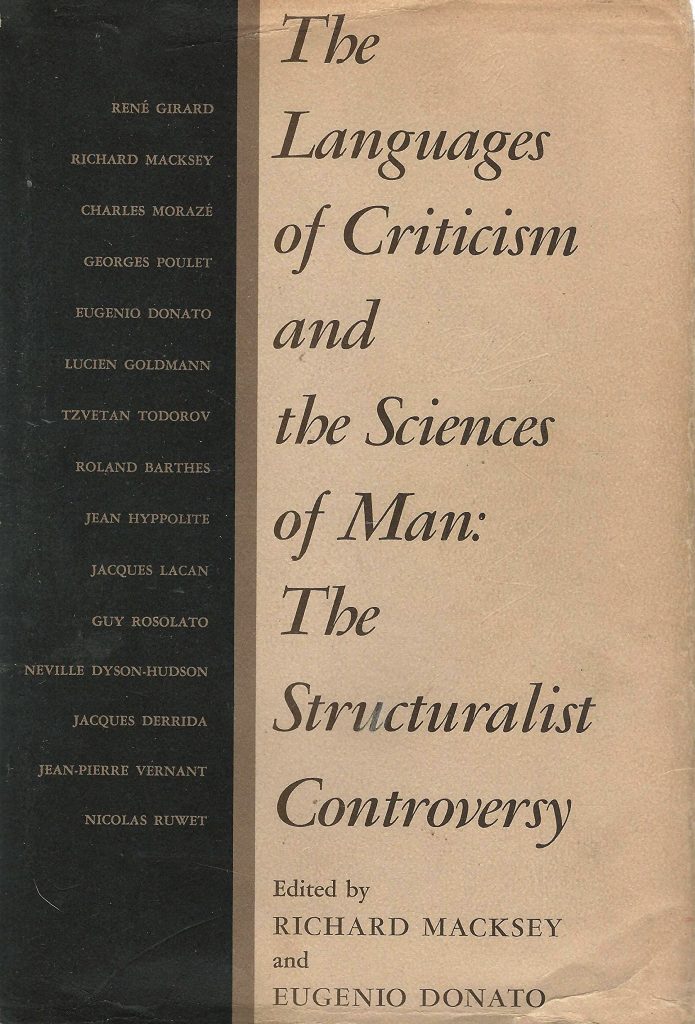For four days in October of 1966, the Milton S. Eisenhower Library at Johns Hopkins University played host to a symposium entitled “The Languages of Criticism and the Sciences of Man.” This gathering brought together scholars from both sides of the Atlantic who would go on to indelibly shape the discourse on structuralism for generations to come. Though this symposium has rightly received much attention from academics across the humanities and social sciences (including an entire issue of MLN in 2019), the publications that ensued have not told the whole story of what happened on those fateful four days in October. For instance, the proceedings edited in 1970 by Eugenio Donato and JHU’s own Professor Richard Macksey (who co-organized the symposium just months after founding the Humanities Center, the forerunner to today’s Department of Comparative Thought and Literature) do not offer the original French of Jacques Derrida‘s landmark talk, “La structure, le signe et le jeu dans le discours des sciences humaines” [“Structure, Sign, and Play in the Discourse of the Human Sciences”], which paved the way for deconstruction. What’s more, the version of this talk which Derrida published in French the year after the symposium in L’Écriture et la différence does not contain the Q&A session in which he famously found himself on the defensive against several perplexed (and occasionally annoyed) scholars, including his teacher, Jean Hippolyte.
It is therefore with great enthusiasm that the Sheridan Libraries at Johns Hopkins University with the support of numerous partners have made available the recording and transcription of this and other talks corresponding with the “The Languages of Criticism and the Sciences of Man” symposium for all the world to read and hear free of charge in JScholarship. Manon Pagé, a PhD candidate in the French section of the Department of Modern Languages and Literatures and a native speaker of French, was instrumental in transcribing the Derrida talk (as well as portions of the talks given by Jean-Pierre Vernant and Nicolas Ruwet which are also now available through JScholarship at the link above) through her work as a Denis Curatorial Fellow in Special Collections in 2021-2022. Even though Manon has done an excellent job with the transcriptions, the state of the recordings (to say nothing of the sophistication (and sometimes, too, the opacity) of the source material) has meant that a handful of places in the transcript have been marked as uncertain. If readers have any suggestions to clarify these uncertainties, they are welcome to be in touch with Katie Carey, the Hodson Curator of the University Archives.

